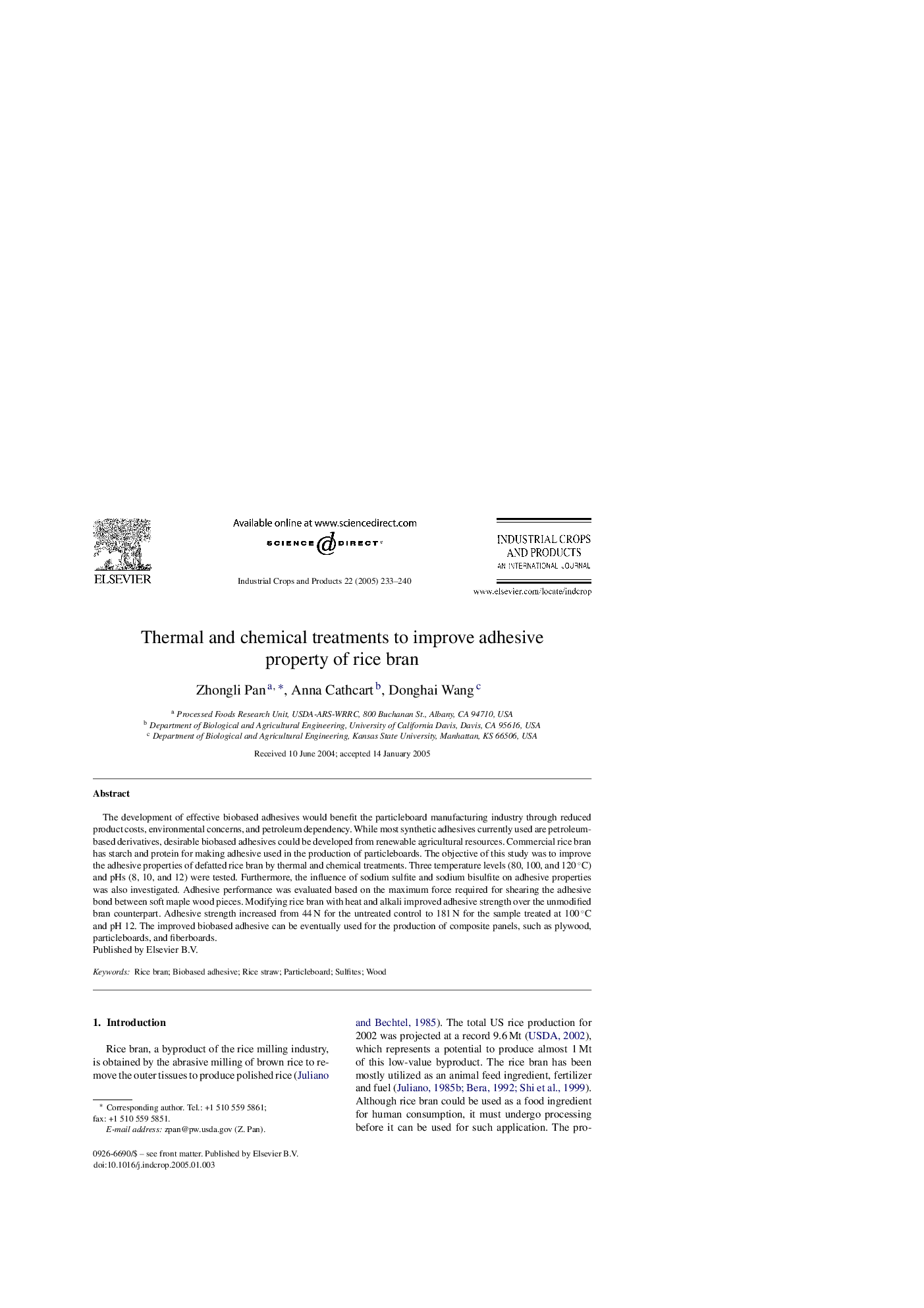| Article ID | Journal | Published Year | Pages | File Type |
|---|---|---|---|---|
| 9474241 | Industrial Crops and Products | 2005 | 8 Pages |
Abstract
The development of effective biobased adhesives would benefit the particleboard manufacturing industry through reduced product costs, environmental concerns, and petroleum dependency. While most synthetic adhesives currently used are petroleum-based derivatives, desirable biobased adhesives could be developed from renewable agricultural resources. Commercial rice bran has starch and protein for making adhesive used in the production of particleboards. The objective of this study was to improve the adhesive properties of defatted rice bran by thermal and chemical treatments. Three temperature levels (80, 100, and 120 °C) and pHs (8, 10, and 12) were tested. Furthermore, the influence of sodium sulfite and sodium bisulfite on adhesive properties was also investigated. Adhesive performance was evaluated based on the maximum force required for shearing the adhesive bond between soft maple wood pieces. Modifying rice bran with heat and alkali improved adhesive strength over the unmodified bran counterpart. Adhesive strength increased from 44 N for the untreated control to 181 N for the sample treated at 100 °C and pH 12. The improved biobased adhesive can be eventually used for the production of composite panels, such as plywood, particleboards, and fiberboards.
Related Topics
Life Sciences
Agricultural and Biological Sciences
Agronomy and Crop Science
Authors
Zhongli Pan, Anna Cathcart, Donghai Wang,
